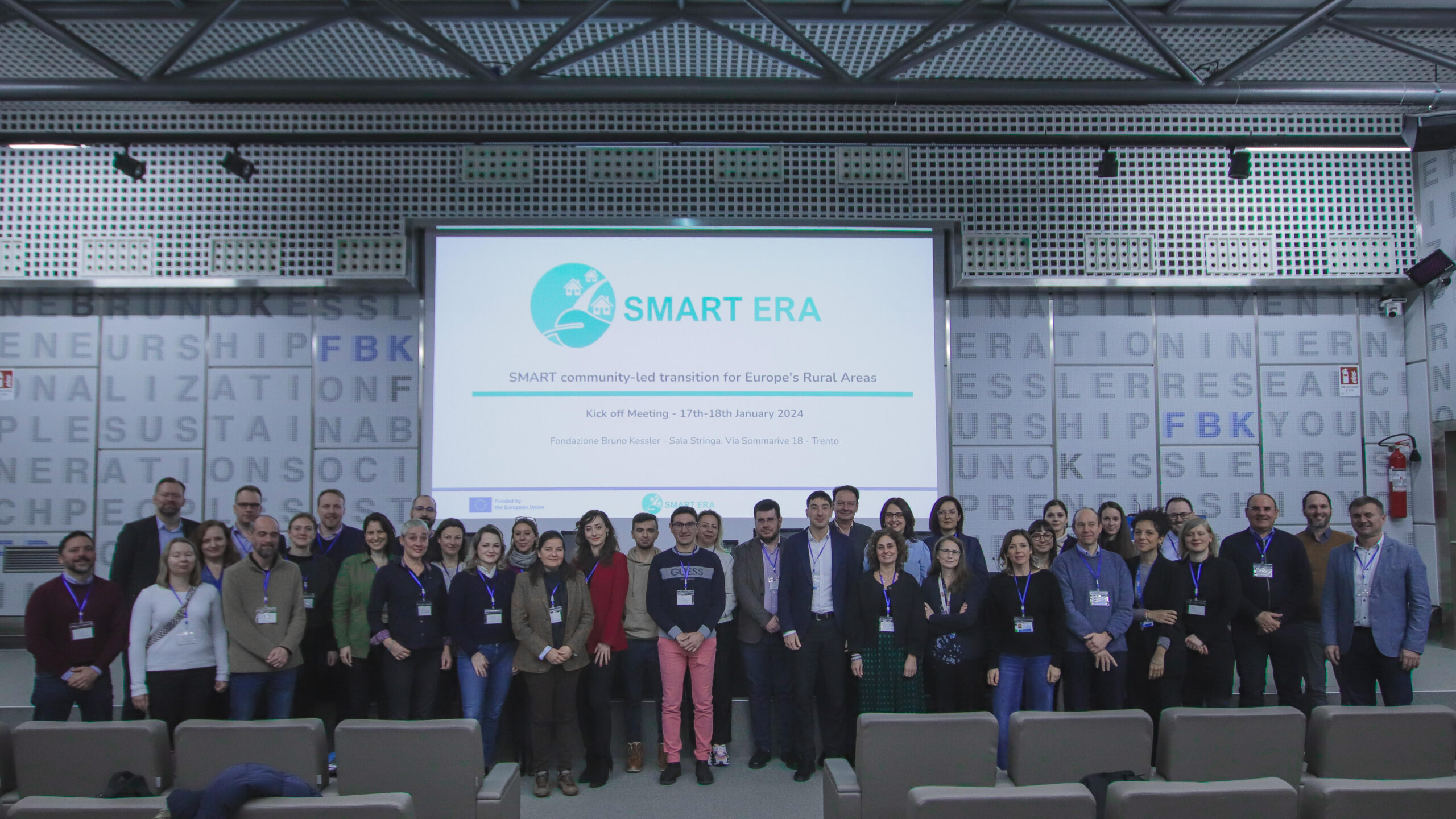In 2024, six selected rural pilot regions across Europe will launch initiatives for smart development. The Horizon-funded project SMART ERA will support those regions by creating a set measures and applications. Those so-called ingredients will be arranged as Smart Innovation Packages, which facilitate a tailor-made approach to tackle specific challenges in the pilot regions. In January, the SMART ERA consortium met for a kick-off meeting in Trento (IT). The aim is to intensify the network and strengthen a common understanding on the challenges and possible solutions.
The results of the SMART ERA projects will also flow into the policy development for the relevant departments in the European Commission as well as into macro-regional policies and strategies.
Participation to meet the needs of rural communities
Quick access to medical treatment, diverse income sources for local farmers, lucrative job perspectives for locals, smooth logistic infrastructure and business ecosystem or better access to remote work – the needs of and visions for rural areas are manifold. As diverse as the needs might be, the common goal is to create better quality of life for people living in rural areas. Hence, the SMART ERA initiative aims at involving communities in developing solutions to implement their vision for their region. Thereby, the SMART ERA Consortium will collect and develop digital tools and participatory approaches to support rural areas in reaching their goals. The rural areas will then select approaches and tools that are most suitable to strengthen participation and co-creating workable solutions to address challenges such as the lack of access to medical care, underdeveloped touristic potential, lack of connectivity of poor framework conditions for rural businesses. However, the areas of intervention can be further expanded.
Those selected approaches and tools create customised Smart Innovation Packages (SIPs). The SMART ERA consortium will assist in creating the ingredients to create those SIPs. In doing so, the project aims at helping rural areas focussing on co-creating their solutions. The kick-off meeting in Trento aimed at gaining a common understanding on the mechanics of the SIPs as well as get to know the pilot regions and their specific needs and environment.
Prepare to get smarter
The SMART ERA project not only supports the six pilot regions: Valle di Sole/Tesino (IT), Tramuntana/Sóller (ES), Northern Ostrobothnia (FI), Trebinje (East-Herzegovina), Devetaki Plateau (BG), Šmarje (SI-IT-HR), but will also provide the opportunity for follower regions to kick-start their smart innovation transformation. The SMART ERA project plans to launch call for proposals to support rural communities to apply the SMART ERA approach in other regions. Further information in the calls will follow as soon as they are available.
Macro-regional cooperation for smart rural areas.
The SMART ERA will also foster the cross-macro-regional cooperation on smart rural areas. The aim is to strengthen smart rural development throughout all four macro-regions in order to decrease development disparities in rural areas, improve the cooperation between urban and rural areas (metropolitan regions), and find solutions to mitigate the negative impact of demographic changes. Furthermore, smart rural development is a tool to strengthen participation of communities in policies and territorial development, which fosters local democracies and supports the endeavours of the enlargement process.
Action Group Connectivity and Accessibility (EUSALP), Policy Area Innovation (EUSBSR), the EUSAIR Facility Point (EUSAIR), and Priority Area Capacity and Cooperation (EUSDR) will be responsible for the set-up of the network.
The project contributes to the EU Danube Strategy’s action regarding enhancing capacities of cities and municipalities to facilitate local and regional development.




